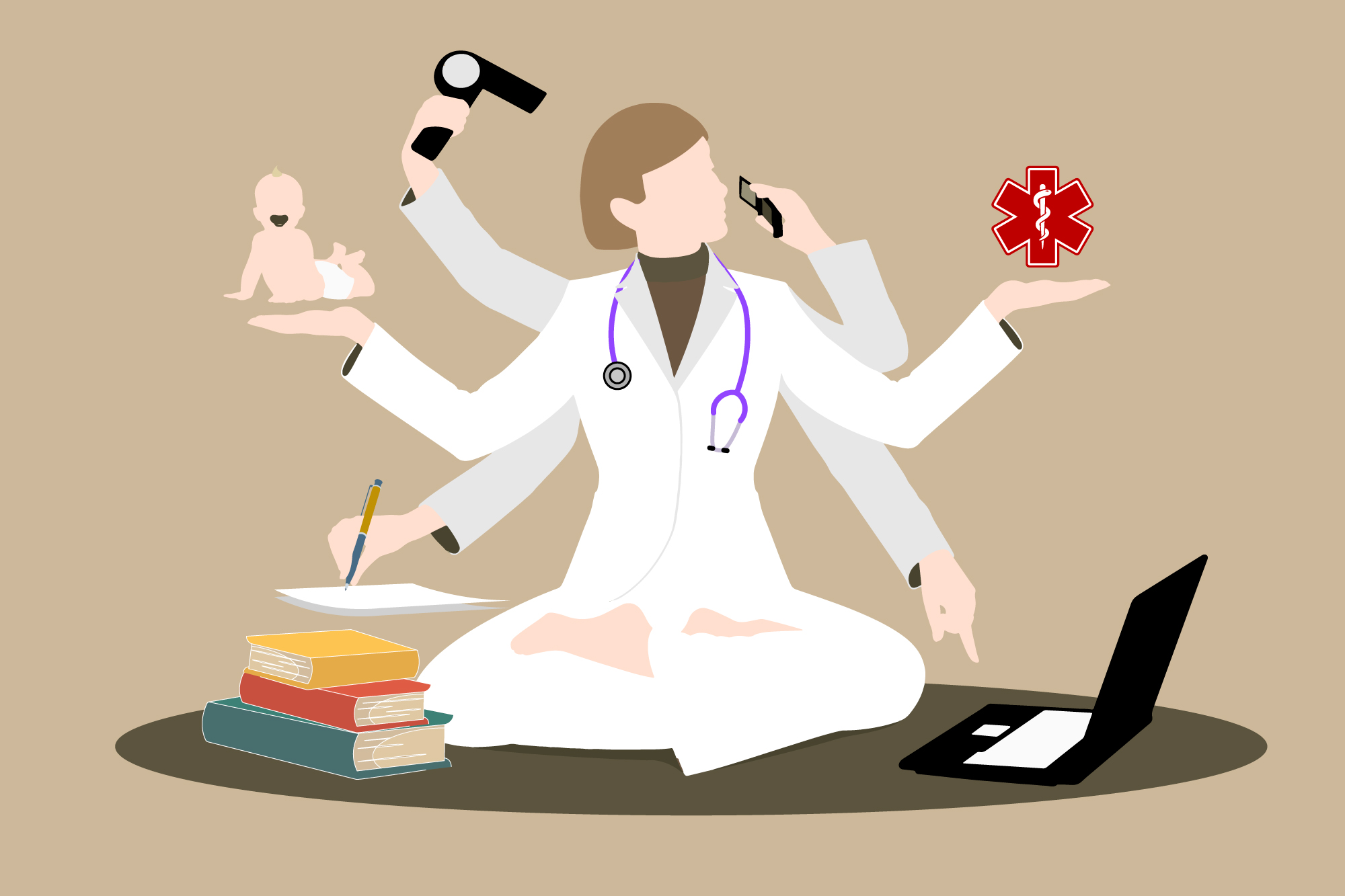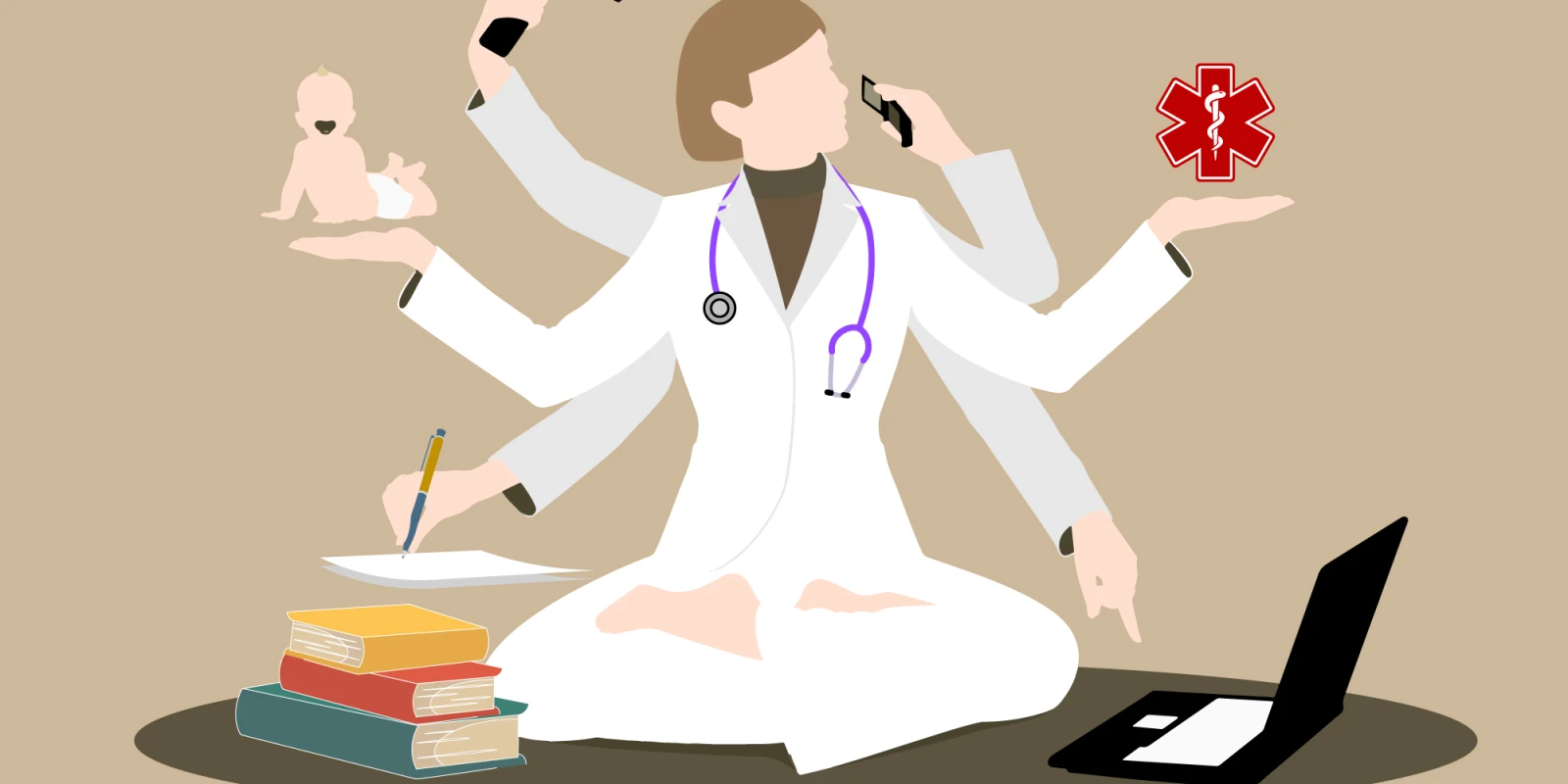 I have a confession: I am terrified of residency. Will I miss a year of my kids’ lives at the altar of intern year? Will I be treated as free labor and assigned menial tasks instead of training to be an excellent physician? Worse yet (much worse), will I be so exhausted that I make a stupid mistake that costs someone their life?
I have a confession: I am terrified of residency. Will I miss a year of my kids’ lives at the altar of intern year? Will I be treated as free labor and assigned menial tasks instead of training to be an excellent physician? Worse yet (much worse), will I be so exhausted that I make a stupid mistake that costs someone their life?
A decimal. The slip of a scalpel. Not recording something prominently enough for the next practitioner. An adult dose given to a child. Missing some key component of history. Failed communication. Machine miscalibration. Double doses, allergies missed, vials confused. The number of seemingly small mistakes that can have fatal consequences in medicine are never-ending. To err is human. Of these many, many mistakes that might contribute to the death of a patient, some actually do contribute to the death of a patient.
A much-cited John Hopkins paper cites medical errors as the third leading cause of death in the United States, though David Gorski’s recent rebuttal suggests that claim may be inflated. He is careful to distinguish between medical error as a cause versus contributing factor of mortality. Gorski’s favored estimate places the number of U.S. mortalities in which medical error played a role at 108,000 annually with 5,200 annual deaths fully attributable to error.
Even these more conservative numbers are unacceptable. Unfortunately, mitigating medical error risk is more challenging than quantifying it.
The death of 18-year-old Libby Zion, caused by an error in medication made by a resident working a 36-hour shift, convinced regulators to investigate how long hours might contribute to medical error. The impact of sleep deprivation on decision-making and performance is now well documented. Study after study show a correlation between errors and extended shifts. (Of course, as is often the case in contentious debates, studies have now also emerged finding no correlation.)
If tired, seasoned professionals are error-prone, you can imagine the mistakes an intern might make. Indeed, a 2006 survey found that long shifts increased the risk of medical errors and adverse events. One small study (n=2737) showed that interns are 2.3 times more likely to be involved in a car accident and 5.9 times more likely to experience a near-miss after an extended shift. Another showed that medical errors at teaching hospitals peak in July, when new interns hit the wards.
There are several arguments in favor of extended intern hours and two merit consideration. Whole papers could be written on these topics, but I will address each only briefly.
The first is that medical trainees need to spend significant time on the wards to become competent independent practitioners. This rings true, but the solution is not 24-hour shifts. Twelve years of post-secondary education should be more than enough training time to become a competent physician; training needs to be more efficient. Integrating and expediting the physician pipeline to allow for more time on the wards and less time in the classroom should be a top priority of the medical profession. (For more details on this topic, check out my piece on medical training.)
The second argument in favor of long hours is the risk introduced by patient hand-offs. Errors in communication and gaps in knowledge created by shift change have the potential to increase medical error and harm patients — but these hand-offs are inevitable. The risk associated with hand-offs need real long-term solutions. “Let’s just do as few as possible” is not going to cut it.
I’m sure most doctors in favor of long shifts with few days off — both while in training and in practice — have good intentions. I wonder, though, whether they’ve bought into seemingly pro-health care narratives that mask a less virtuous bottom line.
A recent New York Times article points out that, despite the high salaries associated with health care professionals, physicians are not medicine’s top earners. That privilege lies with executives and administrators, whose jobs entail cutting costs and keeping hospitals in the black. Long hours for salaried employees is an excellent strategy. Working residents to the bone is an even greater boon — their salaries are paid by Medicare.
The current system exploits the strong sense of responsibility that doctors have toward their patients. Doctors are told that they are the cream of the crop, that they are desperately needed, that no one else can shoulder the responsibility of patient care. It is flattering but ultimately untrue. Thousands of well-qualified applicants are denied entrance to medical school every year.
It is patients that pay the price. Medical error is the most important part of the puzzle, but other aspects of health care delivery are also impacted. An overworked physician is likely to be less empathetic, will spend less time with each patient, and may experience symptoms of burnout.
And to bring it back to errors, a recent Stanford study found that physicians experiencing burnout make double the medical errors. This study mirrors a 2016 study, which found that both long hours and self-reported burnout are independently associated with medical error.
These studies indicate that hour limits aimed at allowing for adequate sleep aren’t good enough. Wellness requires more than sleep; it is about having enough time to be a well-rounded individual who can arrive at work each day mentally and physically rejuvenated.
Alongside institutional exploitation, we also have ourselves to blame for high rates of depression, exhaustion, and stress in the physician workforce. It is all too easy to buy into the culture of overwork.
My daughter was born last year, during my final class as a first-year medical student. I was a week overdue and had been having mild contractions all morning. I attended class and had settled into an Anki-ing session at a coffee house near my school when my water broke. I waddled over to my midwives’ office and they sent me straight to labor and delivery.
I told pretty much anyone who would listen about the experience. Aren’t I silly, I asked between ever-closer contractions. One of my doctors smiled knowingly. She confided that she worked through her contractions until her co-workers threw her out of the office. It struck me that my doctor probably wouldn’t advise a patient to continue working through the early stages of labor. Neither would I. And yet, here we both were … bragging about it.
The experience made me take a step back and examine how my priorities had shifted after only one year of medical school. The fact that my institution had allotted me two days for labor and delivery, docking my attendance points for the class when I didn’t arrive to small group on day three postpartum, is a testament to how our institutions set the tone. It starts early. We need to be careful not to internalize unreasonable expectations.
If we accept a system that breeds unwellness in physicians, we are complicit in its propagation. Doctors and medical trainees have a responsibility to demand reasonable working hours, properly staffed medical institutions, and institutional policies that support physician wellness. We have a responsibility to maintain our own wellness — if not for ourselves, then for our patients. We are not just health care professionals; we are role models.
Erin Wildermuth is a medical student with a master's in International Political Economy from the London School of Economics. She is passionate about health, economics, and technology. She recently edited a compilation of international essays from women using technology to find economic independence and work-life balance. Erin is a 2019–2020 Doximity Fellow.
Illustration Collage by Jennifer Bogartz / Getty Images







